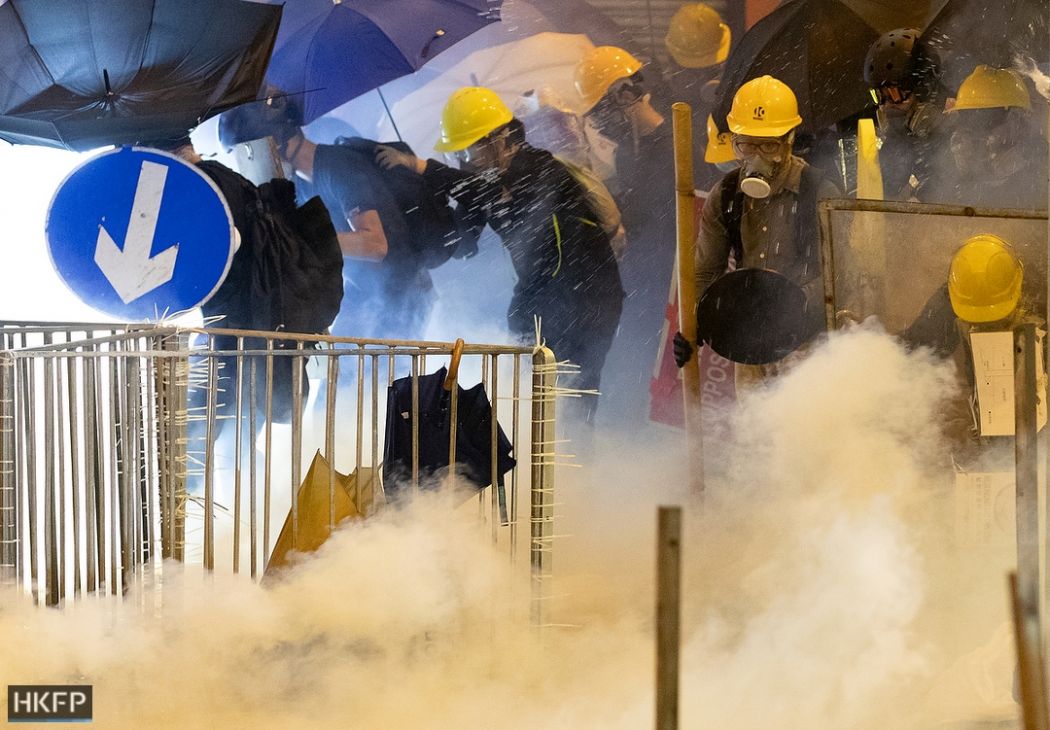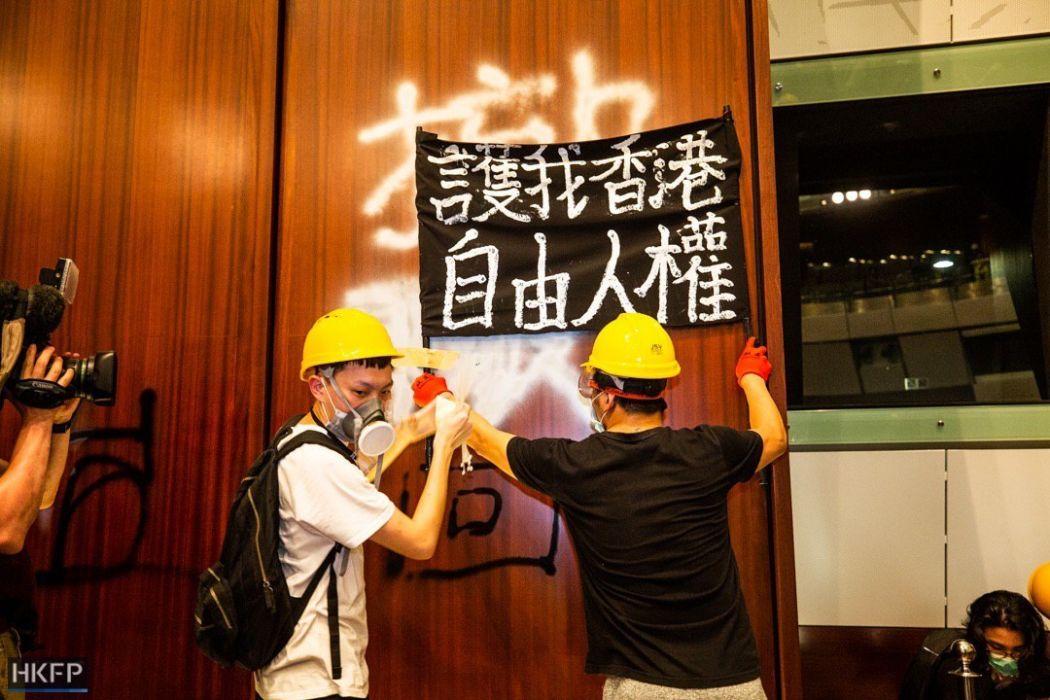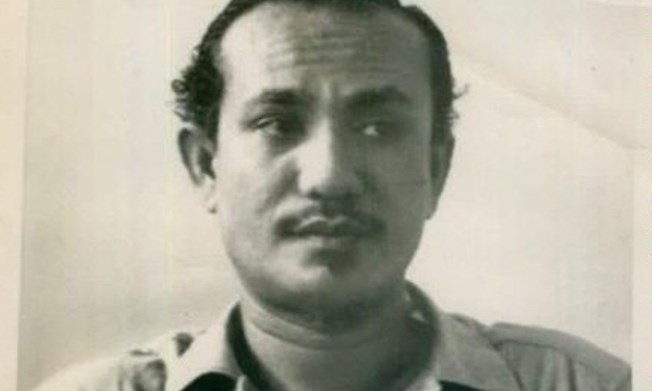After more violent street demonstrations in Hong Kong last weekend, China’s President Xi Jinping took a harder, more chilling stance on the dissent ravaging the city. On an overseas visit to Nepal, he was quoted as warning that any attempt to split China “will end in crushed bodies and shattered bones.”
It is a macabre, violent warning that sends chills down the spines of those who remember the Tienanmen Square crackdown. It is an ominous threat likely intended to scare moderate protesters off the streets.

But it alludes to a much longer history of panicking governments and frail, anxious states clinging to fast-unravelling authority. As all other options for non-democratic and non-conciliatory solutions are exhausted – and as democratic and conciliatory solutions are stonewalled – states turn towards threats of violence and repression.
Sometimes, however, the public grows wise and sees beyond the threats.
Recent demonstrations and violent clashes, where protesters have turned towards increasingly sporadic and dispersed pop-up tactics, have prompted the Hong Kong Police to change their tactics, too. Notwithstanding allegations of police ranks being bolstered by cross-border recruits, the force has sought to increase its counter-protest capabilities by embedding undercover officers among the protesters, striking panic and concern amongst the predominantly youth movement.
But this pales in comparison with the stark rhetoric voiced by President Xi, who holds, by any measure, the capacity to unleash formidable repercussions. Looking back through recent Asian history, stark parallels can be drawn to other socio-political crises.

And the similarities are staggering. By pure coincidence, President Xi’s warning seems like an almost verbatim quote of the threats beamed over the airwaves across Sabah (then the colony of British North Borneo) in 1963 by the Indonesian-funded ‘Negara Kesatuan Kalimantan Utara’ [the State of Kalimantan Utara].
An opaque entity that claimed sovereignty over Sabah and its peoples, the Kalimantan Utara movement was a malignant force initially feared by the public and the government alike, but one that gradually withered into obscurity.
In the early 1960s, as Sabah approached the end of eight decades of British rule, it entered a period of great instability and uncertainty. Just a year before, in 1962, the Philippines had lodged a highly-publicised claim for sovereignty over Sabah, which continues to resurface today.
Indonesia, too, coveted Sabah’s territory and resources. Britain and the United States, in contrast, wanted Sabah (and the neighbouring Borneo territory of Sarawak) to be handed over to Malaya to form the Federation of Malaysia.
While these historical pressures are different from those affecting Hong Kong today, they both resulted in the pitting of local sentiments against what was increasingly perceived as unwanted—at times, foreign—interference.
Increased cross-border transgressions, a perceived loss of local autonomy and curtailed freedoms have each contributed to the growing sense that Hong Kong is not only a city cast adrift, but also one completely surrounded.

Meanwhile, in the early 1960s, many of these same concerns were felt by locals across Sabah. They feared a loss of freedoms and ways of life under potential Kalimantan Utara rule. They feared violence and repression. And most importantly, people across Sabah felt that they weren’t getting a say in their future: bigger states and louder voices were drafting plans for post-colonial statehood.
Increasingly, handover to Malaya (to form the Federation of Malaysia) was being touted by the colonial government as the only viable option. Such a handover effectively became a blueprint for subsequent constitutional transfers, such as Hong Kong’s own handover in 1997.
Anti-colonial and anti-Malayan sceptics across Southeast Asia took issue with the Malaysia plan, leading to an ultimately unsuccessful rebellion in Brunei in December 1962. In the months that followed, this led to the rise of the Kalimantan Utara movement, which aimed to strike fear amongst Sabah’s public and shift local opinion against Malaysia.
Propaganda, especially the use of radio, became a heady battleground between the Indonesian-funded rebel group and the British colonial state. In the age before internet and social media, radio dominated the public’s news and media consumption.
Where on Monday the Hong Kong public awoke to warnings of “crushed bodies and shattered bones,” so too did Sabah’s public in early 1963. A proclamation broadcast repeatedly throughout 25 March 1963 by the head of the Kalimantan Utara movement, Sheikh Azahari bin Sheikh Mahmud, threatened:
“Those who obstruct us will be killed by us, we shall drink their blood, slice their flesh and break their bones.”
Sabah’s public was riven with panic. Colonial records and local reportage alike brimmed with fear and concern. Just as Hong Kong’s public wonders if, or even when, the PLA will come across the border, so too did people in Sabah grow fearful of border raids from Indonesia, which were increasingly afflicting neighbouring Sarawak.
Concerned locals worried about armed raids ravaging their villages, crops and livestock. Rumours of rebel camps in the rainforests gave substance to these fears.

Yet, as the months followed, and as wider political destabilisation intensified during the run-up to the formation of Malaysia, public concern about the Kalimantan Utara movement slowly dissipated.
A subsequent radio message, on 20 May 1963, proclaimed by Azahari’s subordinate, Lieutenant-General Zulkipli, threatened to “crush … bones to powder.” Few took notice.
Amidst its strident and warmongering rhetoric, the Kalimantan Utara movement became deeply unpopular, and gradually, it lost credibility. People couldn’t take it seriously.
China, too, risks losing credibility through such unrestrained threats of violence and death. While the Kalimantan Utara movement was a weak political incarnation designed to destabilise Sabah and counter the formation of Malaysia, China is a powerful country.
Sheikh Azahari turned towards violent, strident threats to compensate for the movement’s weaknesses: namely the fact that it claimed to be a functioning state even though it wasn’t. President Xi shouldn’t have to do the same.
